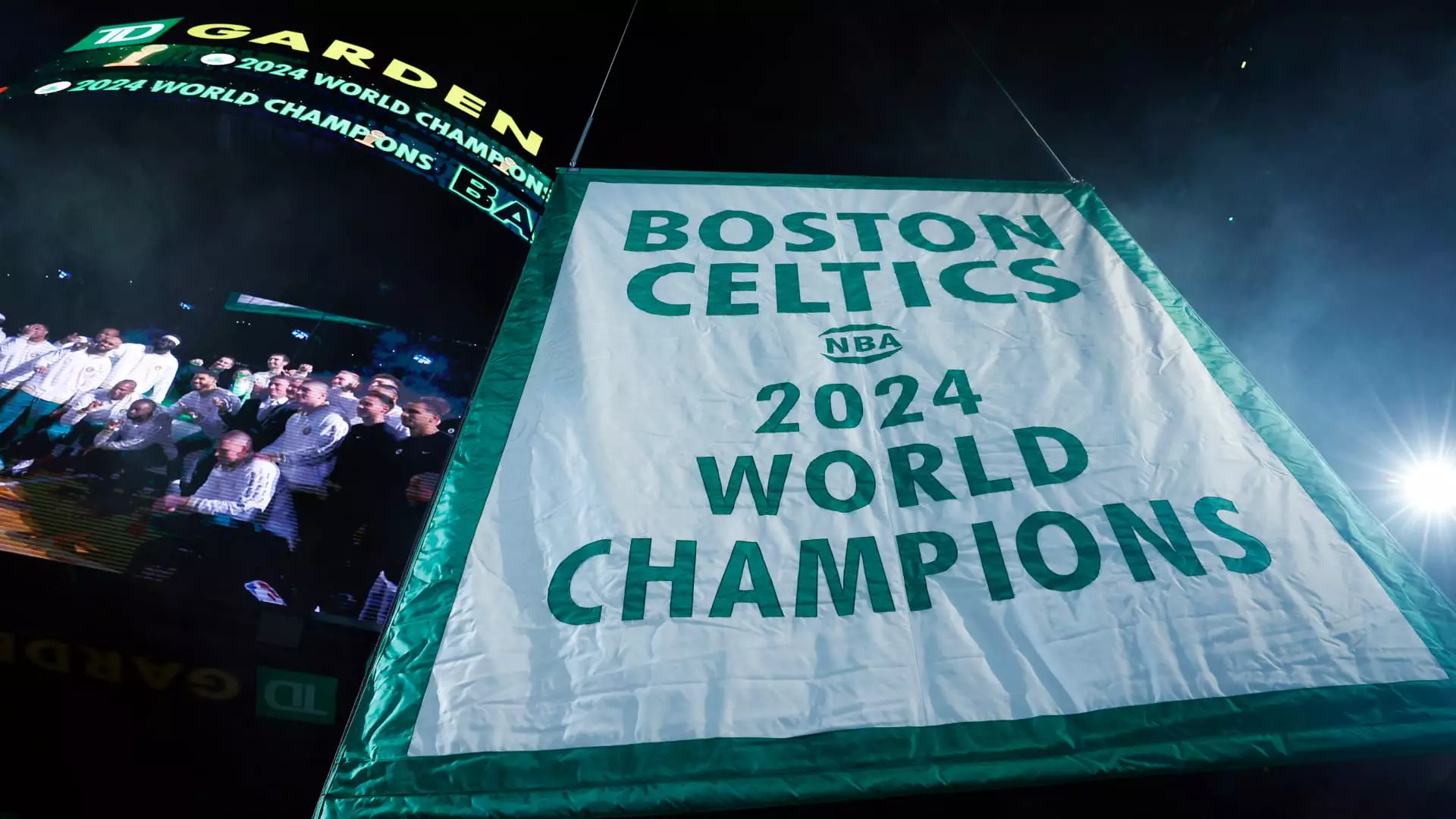In a groundbreaking move that sent shockwaves through the sports world, the Boston Celtics have been purchased for a staggering $6.1 billion. This historic sale, the largest in the annals of North American sports, reshuffles the landscape as private equity executive Bill Chisholm takes the helm. Given the Celtics’ storied legacy, one cannot help but scrutinize what this transformation entails, not just for the team but for the community that cradles it.
Chisholm’s statement about his lifelong devotion to the team and the importance of the Celtics to Boston serves as a powerful reminder of the intricate relationship between local sports franchises and their cities. The pride associated with such teams often transcends mere athletic success—it’s about identity and culture. However, does this new ownership, heavily intertwined with calculated financial investments, genuinely understand these nuances? Or will they prioritize profits over community engagement?
Analyzing the Ownership Dynamics
The ownership group not only includes Chisholm but also prominent figures like Boston businessman Rob Hale and Bruce Beal Jr., with substantial financial backing from Sixth Street, a private equity firm injecting over a billion dollars into the mix. It raises a critical question: Are professional sports teams becoming the new playgrounds for billionaires and investment firms? The sheer financial weight of such deals suggests a shift towards corporate ownership that poses potential risks to the soul of a team’s identity.
One could argue that the Celtics are not merely a business venture; they are an emblem of Boston pride, history, and legacy. The prospect of ownership being driven by financial gains rather than by love for the game looms large. While Chisholm appears to be a fan at heart, one wonders how long this affable veneer will hold during press conferences and board meetings where profit margins often dictate decisions.
The Rise in Valuations: A Double-Edged Sword
With this eye-popping sale price surpassing that of the NFL’s Washington Commanders, the astronomical valuation of sports teams can be seen as a reflection of burgeoning media rights deals. The NBA’s new $76 billion agreement with major networks is a game-changer, generating a tsunami of revenue that cascades down to the franchises. Economically speaking, skyrocketing valuations raise the question of sustainability; will this financial bubble burst, and what will that mean for teams and their loyal fanbases?
As the structure of ownership becomes increasingly fragmented, with private equity firms playing pivotal roles, the heart of team loyalty may be sacrificed at the altar of investor expectations. The nature of sports culture and fandom is changing, revealing the fragility of passionate support as a commodity often eclipsed by fiscal interests. Are we ready to witness our teams, traditionally held in the esteem of family legacies, become assets traded like stocks?
Celtics Culture: Balancing Tradition and Innovation
The Celtics have won 18 championships, brandishing a blue-blooded legacy that is both an asset and a challenge for the new ownership. Bill Chisholm’s heartfelt claims about the team’s community role might inspire optimism, but one must remain vigilant. The challenge lies in navigating the tightrope of preserving tradition while also embracing the new dynamics of sport management.
With Grousbeck remaining in his role through the 2027-2028 season, continuity is assured at some level. However, continuity should not be mistaken for complacency. Chisholm will have to demonstrate that he can both honor the past and evolve the franchise into one that thrives in an era where digital engagement and revenue streams are paramount. The specter of stagnation has haunted many a franchise; this is where true leadership will be tested.
A Call to Collective Accountability
As the Celtics embark on this transformative journey beneath a new banner of ownership, fans, community members, and stakeholders must take a proactive stance. It’s not solely up to executives to ensure that the franchise remains a source of local pride; essentially, it’s a shared responsibility. The values that once defined this iconic team—the relentless pursuit of excellence, community involvement, and genuine passion—must not only be preserved; they must be championed vigorously in the face of growing commercialism.
It is time to redefine what sports ownership represents. Will this transformation prove to be a catalyst for improving the Celtics’ engagement with their community or become another cautionary tale of sports teams losing touch with their roots? The stakes have never been higher, and the community must remain vigilant in shaping the dialogue about what it means to support a team that stands for so much more than just winning games. In the end, the ethos of the Celtics could hang in the balance, waiting to be redefined in an era marked by corporate dominance.

